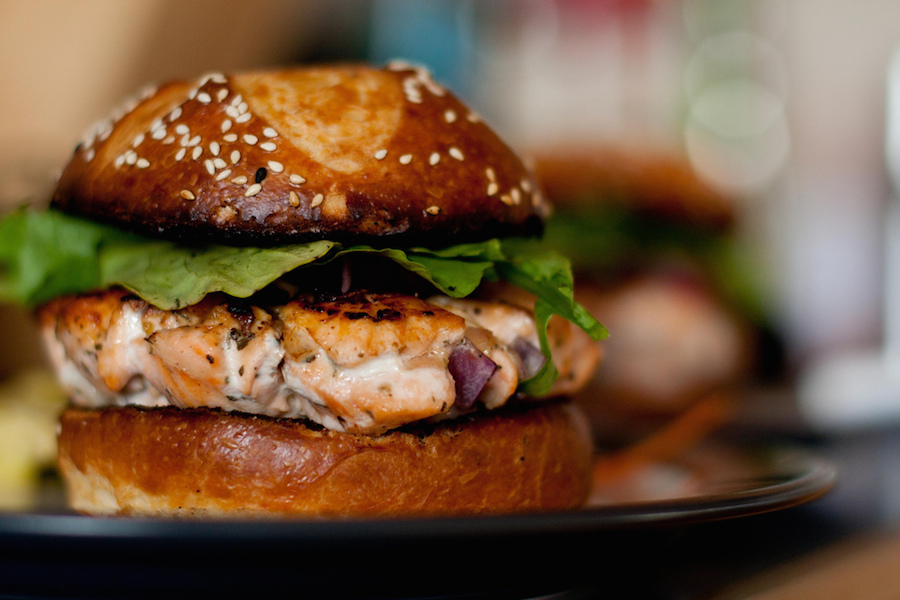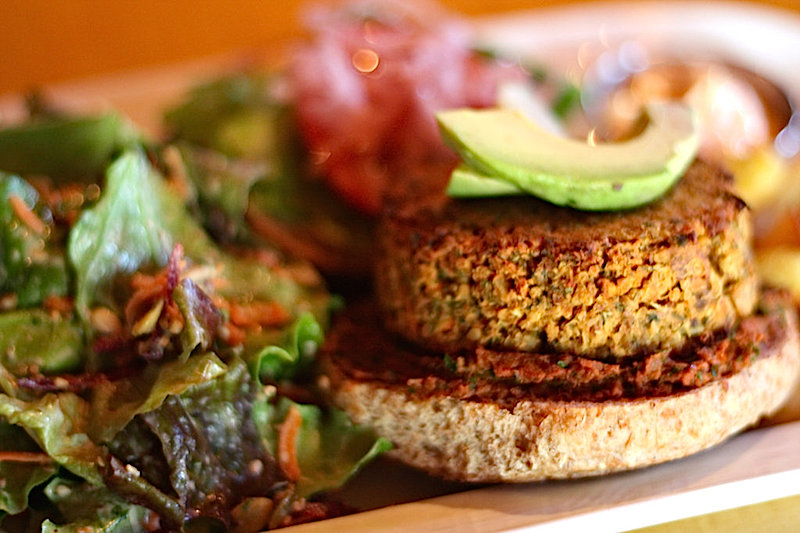With new joints popping up in every corner of the city, Hong Kong’s burger scene is becoming increasingly crowded. This reflects a growing demand for a higher quality, tastier, and supposedly healthier alternative to traditional fast food chains.
Seemingly jumping on the trend, even McDonald’s recently launched the Create Your Own Taste (CYT) kiosks in Hong Kong, allowing customers to choose from a variety of arguably more gourmet ingredients – and pack on the calories and fat at their own risk.

When judged by nutritional standards, obviously we would be better off if we ate fewer burgers altogether, whether plain or fancy. But nobody wants to hear that.
Most of us have also probably been careful to avoid thinking about what the more decadent burgers might be doing to our insides. If you’re a die-hard burger fan who just doesn’t want to know, don’t read read on!
1/ A typical hamburger starts out with a ground beef patty, usually very high in saturated fat. Add to that bacon, cheese, mayonnaise, onion rings, etc., and you’ve got yourself a calorie bomb waiting to explode right into your heart and arteries. Yummy!
2/ Unlike McDonald’s, the menus at artisan burger joints generally do not include nutrition facts. This makes it very difficult to determine the portions and fat content, but the size of most of these burgers suggest they can easily put you over the edge in terms of calories for a day.
3/ Fancy burger joints usually serve more juicy meat between the buns. The general public is advised to consume less than 18 ounces of red meat a week, so, again, you can easily go a little overboard with a few burgers.
Ultimately, you would get a “healthier” meal at a traditional fast-food burger place – the Big Mac and the Whopper look surprisingly petite compared with the gut-busters from some premium burger joints.
Although monster burgers may be off the menu for those who care about their health, with a few modifications and these tips in mind, it is possible to eat healthily at these joints:

For example, a fish burger can promote heart health, as long as the fish fillet is not heavily battered and deep-fried. You can get healthy fatty acids, omega-3 and polyunsaturated fatty acids from the tuna/salmon, and more protein and probably less sodium than the most veggie (bean-based) burgers.
Top it up with the good stuff.
Avoid the high saturated-fat toppings such as bacon and full-fat cheese, fried eggs, etc. Load up on the flavourful and nutritious vegetable toppings such as grilled onions, pineapple, mushrooms, avocado and peppers.
Here’s the nutritional value of some healthy and delicious toppings:
Onions: a good source of vitamin C, B6, and selenium and have anti-inflammatory and anti-bacterial properties.
Lettuce: a good source of vitamin A, C, K and dietary fibre.
Tomato: an excellent source of vitamin A and C, dietary fibre and contains cancer-fighting compound called lycopene and other phytonutrients.
Bell Peppers: an excellent source of vitamin A, C, and B vitamins, and contain carotenoids such as beta-carontene and zeaxanthin, both of which are important for optimal eye health.
Avocado: rich in omega-3 fatty acid and a good source of pantothenic acid, dietary fibre, vitamin K, vitamin B6, potassium, vitamin E and vitamin C.

When you keep the portion down, it keeps other things, like sodium and fat (and your cholesterol level), under control. So when you share with someone, you are automatically cutting calories. Duh!
Forgo the sidekick
Pairing fries and a sugary drink to your meal instantly jacks the calories up to sky-high levels.
Skip/share the fries: save about 150 calories
Take out the upper bun: save about 120 calories
Skip the cheese: save 50 – 80 calories
Forgo the mayo: save about 100 calories
Say no to condiments
One tablespoon of ketchup, mustard, relish or two pickle slices contain about 500 milligrams of sodium – about a third of your daily recommended sodium intake.
AND opt for plain water and enjoy every bite of your burger
Always remember: eating is not about gorging ourselves; it’s about indulgence, enjoying every bite and being good to our bodies. And a monster or guilt-free burger, no matter its calorie count, should never be eaten daily – it is not an apple, after all.
Michelle Lau is a nutrition expert, qualified nutritionist, and a wellness coach who specialises in sports nutrition and weight management. Her mission is to improve the health and well-being of Hongkongers with different health/nutritional needs and goals and ultimately lead them to a healthier and happier life. Check out her blog and Instagram (nutriliciousss) or contact her at nutriliciousss@gmail.com.
Got a tip? Send it to us at hongkong@coconuts.co.





Reader Interactions